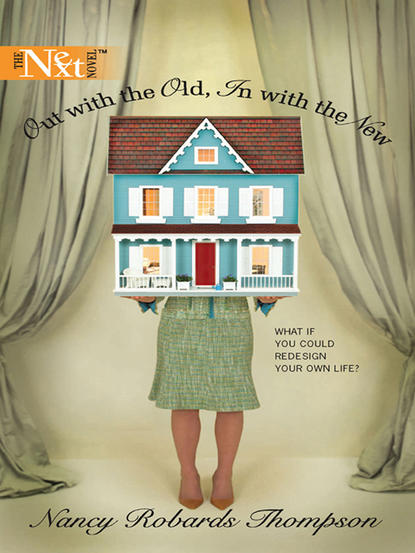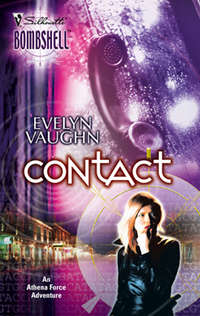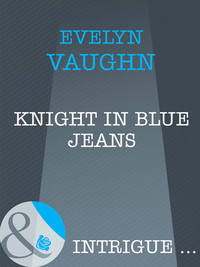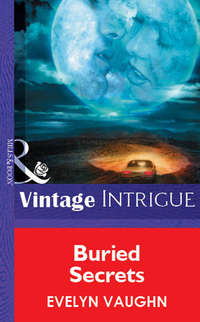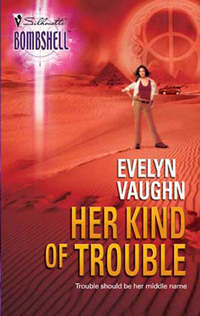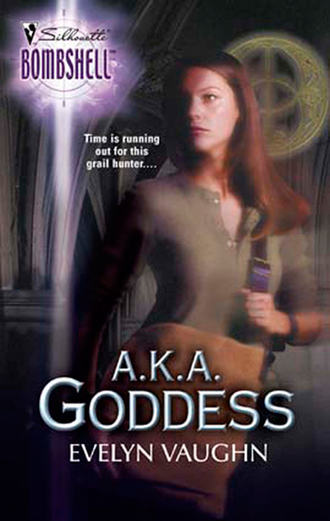
Полная версия
A.k.a. Goddess
Either way, her recommendation was good enough for me.
It wasn’t like I’d been divinely chosen for this myself.
Rhys took the first shift driving. Maybe that’s why I didn’t notice them at first. I was busy watching dusk settle over the City of Lights, before we reached the A6 motorway.
You can see the Eiffel Tower from anywhere in the city, of course, and other landmarks like Nôtre Dame and the Arc de Triomphe are hard to miss amidst the glitter and the centuries-old bridges crossing the Seine. I loved it. I used to spend a month here every summer with my cousin Lil and our maternal grandmother. Lex once called Paris my maison away from maison.
It was a coincidence, him coming to Paris today. Wasn’t it?
“I know to head south,” said Rhys, who looked a little long for Aunt Bridge’s 3-door Citroën Saxo VTR. “Have you got anything more specific in mind?”
“We might as well start in Lusignan,” I said. “Since their claim to Melusine is the strongest.”
“Mère Lusigne,” he murmured, by way of agreement. That’s where some believe Melusine got her name. So he did know his stuff. “The closest city would be what, Poitiers? At least we oughtn’t to have trouble finding a place to stay. They have that big amusement park, nowadays. Not Disney—the futuristic one.”
Good thought. “I’ll call ahead for a reservation,” I said, reaching for one of the cargo pockets on my pants. “What with all my overseas relatives, I got a satellite phone as soon as they came on the market.”
“We can just see what’s available when we get there.” When I stared silent questions, he admitted, “I don’t have a credit card.”
“At all?”
“I haven’t had time to build a credit history.”
I laughed. “What, you’ve been in prison?”
All Rhys said was, “It’s not there I’ve been.”
I shrugged. Aunt Bridge trusted him.
And if she was mistaken, I could probably take him.
“We’ll use my credit card,” I said, calling Information.
“I can pay my way,” he assured me. “I have cash.”
This was so unlike any road trip with Lex Stuart that I had to grin at the irony. But after making a reservation at the Holiday Inn, I thought back to Aunt Bridge in that hospital bed, and my sense of humor faltered.
“Why now?” I asked, of the darkening French landscape as much as anything. “Our family has passed down a rhyme about the Melusine Cup for centuries—how did someone suddenly notice us?”
“Brigitte didn’t mention her lecture to you?”
I turned to better face him. “What lecture?”
“Three nights ago,” he said. “She gave a presentation on ‘Le féminin perdu en archéologie du dix-huitième siècle.’”
“‘The lost feminine in eighteenth-century archeology’?”
“How they dismissed the countless goddess figurines they found as dolls or pornography. That’s it. At one point, someone in the audience mentioned the Kali Cup. It had just made the news. Some of them thought its destruction was part of a—how did they put it—a patriarchal conspiracy for the continuing subjugation of women. “If destroying the Kali Cup was part of a great masculine conspiracy, I never got my ballot. Should I be insulted, do you think?”
He followed the signs toward Orléans. “I think the trouble started when Brigitte reassured the audience that there were more goddess grails, and that she and her brilliant American niece were working toward locating one in France.”
I groaned. “She didn’t.”
But of course she had. Aunt Bridge never backed down from anything. She had to have known the danger of her announcement. That didn’t mean she’d deserved the consequences.
It was the men who’d attacked her who perverted our world, who made it a darker place, not my aunt speaking the truth.
“She threw down the gauntlet, and someone picked it up.”
“At the risk of sounding sexist,” I said, “were there any other…?”
“Penises there?”
I choked. “Rhys!”
“There were,” he assured me. “Quite a few. Assuming the attackers were men in the audience we cannot narrow it down to one or two suspects.”
“It wasn’t just the men in the audience,” I said grimly.
Rhys glanced toward me, intrigued. “Why isn’t it?”
“Because they wouldn’t have had time to fly to the East Coast and break into my apartment. It has to be some kind of group or association, some kind of…”
“You think it’s a conspiracy?” Rhys prompted.
But that sounded far too dramatic for my comfort.
About an hour later, we stopped and ate a late dinner outside Orléans—the place Joan of Arc rescued before she got burned as a witch. While Rhys refilled the tank with petrol—his word—I phoned my mother. She insisted on going by my apartment to clean up the damage from the break-in. It wasn’t a battle I would easily win, so I forfeited.
When Rhys tossed me the keys to the Saxo, I slid into the driver’s seat, adjusted the mirrors and merged us back onto the motorway heading southeast.
I hadn’t driven ten kilometers before I noticed it.
There, in the rearview mirror, hovered a dark-green, four-door sedan made of sleek, curved lines.
Like some kind of water creature. Like a shark.
Maybe it was instinct that locked me on to it. Or maybe instinct is just our subconscious noticing something—a driver’s face or a suspect maneuver—that our conscious mind hasn’t caught on to. At first I hesitated to mention it to Rhys.
What if I was imagining this?
I took the Blois/Vendôme exit, just to test them.
They took the same exit. At the next cross street, I U-turned under the motorway.
They followed. Crap.
Rhys inhaled deeply as he sat up, unable to ignore the centrifugal force of my turn. “Is something wrong?”
I turned right, past an anachronistic McDonald’s, and divided my attention between the road ahead of me and the car behind me. “What kind of car has a silver lion on its grill?”
“Rampant?” he asked, rubbing a sleepy hand across his face.
“Yeah.”
“That would be a Peugeot.” Yet another gender stereotype, proven out.
I made another right.
So did they.
I signaled a third right, as if lost—then turned hard left.
They followed. Worse, despite the illusion of activity given by that McDonald’s, I’d somehow driven us into a dark, industrial neighborhood. No, no, no! You’re supposed to stay in a populous area when you’re being tailed.
“Then we’re being followed by a Peugeot,” I said grimly.
Rhys turned in his cramped seat to look—which is when the Peugeot behind us picked up speed, looming increasingly closer in my rearview mirror.
“Ah,” he breathed.
“Yeah. Merde.”
I hit the gas.
Hard.
Chapter 5
“W ould you prefer that I drive?” asked Rhys. The question kind of squeezed out of him. He was pressed firmly back in his seat, only partly by choice.
“No.” I toed the gas pedal to the floor—after all, if the police stopped us it would be a good thing, right? Most tails don’t stick around to talk to the authorities. “Do you think they followed us all the way from Paris?”
“I don’t know. How would I?”
By looking in the rearview mirror once in a while? That wasn’t fair, and I knew it. I had to focus on now.
The Peugeot was gaining on us. It was a larger car than Aunt Bridge’s Citroën. It had more power.
We shot onto a bridge over the Loire—luckily, a regular, two-lane bridge, and not one of those scenic medieval landmarks. For a moment, as we left the upgrade onto the bridge, the Saxo’s tires left the road.
It landed about as smoothly as the jet I’d ridden into Paris earlier today. I managed to hang on to the steering wheel and felt disproportionately proud of myself, which seemed preferable to feeling terrified.
We were leaving the industrial area behind for more open landscape and less chance of police intervention.
Who were these guys?
“Do you know where we’re going?” asked Rhys, his voice not quite as tight. He was trying to stay cool, anyway.
“Away from the damned highway,” I confessed. “And I want to be back on it. You’re wearing your seat belt, right?”
He didn’t sound encouraged when he asked, “Why do you ask?”
The Peugeot had reached our bumper. Now it was starting to pass us—rather, to pace us. I glanced to my right, to see that Rhys did have his harness on, before looking out to my left.
A tinted passenger window slid slowly downward, and a pistol appeared over its top, waving at us to pull over.
I hit the brakes.
The Peugeot whipped past us like the bullet I’d probably just escaped. Or postponed. The Saxo squealed to a reluctant stop with a horrible scream and stench of burnt rubber. My own seat belt yanked me back against my seat, hard enough across my shoulder to leave a bruise.
Rhys coughed out something that sounded like “Oofa coals.” Whatever. Since the Peugeot, ahead of us, was making a 180 turn, I wasn’t ready to ask for a translation.
I shifted the Saxo into Reverse and eased on to the gas. The tires had held. We started to pick up a little speed…but not as much speed as we’d need to outrun that Peugeot.
“I’d prefer we not take the bridge this way,” said Rhys, his Welsh lilt more distinct the more tense he got.
“We won’t,” I said. “Hang on.”
At least the road was relatively deserted—a benefit of late night travel. I’d only practiced this a few times, but the gun had upped the ante, so I ticked off the check list in my head.
Fix on a spot just ahead, like in yoga balance exercises.
Push the pedal to the metal. But not for long. This maneuver was only safe—relatively speaking—at under forty miles per hour. Whatever that was in kilometers.
I then did three things at once. I hit the clutch, threw the car into Drive and yanked the steering wheel to the left.
A brief grinding of gears joined the scream of tires as our back end pivoted left and our nose pivoted right, the weight of the engine carrying us around in a perfect bootleg. Yes!
Before we even came to a stop, I stood on the gas to shoot us forward—the Peugeot still gaining on us. It wasn’t a great improvement from a few minutes ago, but at least we were heading the right direction, nose first. We flew back across the bridge, startling some ducks out from under it. We shot back into the industrial area, but the Peugeot was quickly closing our lead. Instead of images of the gendarmerie finding our bodies buried in a field of picturesque sunflowers, I was now picturing them never finding us. Like Hoffa. But in France.
We weren’t going to outrun these guys.
“So what’s ‘Oofa coals’ mean?” I asked, surprised at how clenched my own words were. The Peugeot’s headlights, in the rearview, drew closer. I couldn’t see driver or passenger, but if I were the latter, I would be preparing to shoot out—
Yup, there was the pistol, aiming at our tires. I swerved, and the only explosion I heard was that sinister pop of gunfire. It doesn’t sound as loud in real life as in the movies.
It’s a lot scarier, though.
Rhys said, “Uffach cols. It means embers of hell.”
The Peugeot pulled around and was flanking us now.
“Hang on!” Again, I stood on the brake pedal, pulling the handbrake simultaneously. We skidded forward some yards, further abusing the tires. The Peugeot shot past us again, but braked faster this time—and turned, sideways, blocking our way to civilization.
Brick warehouses crowded the road on either side, without even a sidewalk to try to squeeze around the green car.
“That’s some fairly mild swearing,” I said, breathless.
“It is not, for me,” he muttered.
The passenger door of the Peugeot opened, and a man with a pistol got out. He was wearing a ski mask.
Rhys said, “Isn’t it time to back up again?”
I considered that, considered how much more abuse this poor Citroën Saxo could take. If we ran, the Peugeot would just follow us again. Cat and mouse…and they got to be the cat.
The gunman approached us, especially ominous in the white illumination of our headlights, wreathed with foreign nighttime.
I said, “So how much does Aunt Bridge like this car?”
“She rarely drives it. She prefers the Metro.”
The brake engaged and the gearshift in Neutral, I gunned the engine. Both Rhys and the gunman jumped. “Good.”
The gunman wagged a gloved finger at me, a clear tsk-tsk. He came closer. At least he wasn’t shooting us—yet. He probably wanted to question us first. Then shoot us.
Fat chance, monsieur.
“You cannot run him over,” said Rhys, his voice firmer than at any point since this car chase started. Interesting.
I gunned the motor again, this time with less effect. “Well…I could.”
Damned if Rhys didn’t unfasten his seat belt and reach for the door handle! I lunged across his lap, grabbing his wrist before he could do it. “Wait!”
His eyes seemed bluer in the shadows and the reflected headlights. They were determined, too. Any macho points he’d lost by not noticing the tail, Rhys Pritchard gained back in spades at that moment.
I straightened away from him, released his wrist. “Put your damned seat belt back on,” I said. “I don’t plan on murdering anybody, whether they deserve it or not.”
He hesitated. The gunman was slowing, waving at us to get out of the car.
“Please,” I said, not taking my eyes off the gun. “Have a little faith, here?”
“Have faith?” But thankfully, the familiar click of a seat belt locking into place gave me the permission I needed. I gunned the motor a third time, dropped the car into Drive and burned rubber like a teenage boy showing off at a red light.
Then I released the brake.
The Citroën shot ahead. The gunman leaped out of our path.
I wasn’t aiming at him, anyway. Instead, I accelerated. Thirty kilometers per hour. Forty. Fifty—that was about thirty miles an hour. Sixty…
I rammed our Citroën straight into the passenger side of the Peugeot, behind the rear wheel. There was a crash, a jolt—but, just as I’d been taught, the car skidded out of our way.
The rear of a car is the lightweight end.
I flattened the gas, and the Saxo surged forward—with a nasty dragging sound that, after a few hundred feet, stopped when we bounced over our own bumper. Oops.
Behind us, the Peugeot tried to follow, not waiting for its gunman. But the car managed only a few lunges forward, unable to even navigate the turn to escape the warehouses framing them. As I’d hoped, I’d disabled the damned thing.
Yes!
Rhys sat quietly in the passenger side of the car as I retraced my turns back onto the motorway. I realized, in the near silence, that neither of us had bothered to turn off the radio. We just hadn’t noticed it, our lives being in danger and all. The music seemed particularly trivial, all of a sudden.
I unclenched my hands from the steering wheel, one at a time, and practiced my breathing. Then I said, “Could you check the map for the nearest train station? We’re going to be a little obvious if we keep driving this.”
Rhys shook his head, not in the negative so much as to clear out the debris. “I can. Where did you learn all that?”
“An old boyfriend of mine got special training—sort of a demolition defensive-driving course. Then he taught me. The bootleg turns, anyway. We only covered the theory of ramming.”
Lex had always been generous with the tricks he learned. We’d had a blast that week, taking turns pulling bootlegs and speeding in reverse around a big, empty QuestCo parking lot.
Funny, how all roads seemed to lead back to Lex Stuart.
“And he took it because…?”
“Because he got tired of having drivers and bodyguards. His family’s well off. It made him a pretty high abduction risk.”
“That’s lucky for us,” said Rhys, opening the glove box to pull out a map. I glanced at the stretch of his shoulder as he rummaged, suddenly longing for human touch. Any human touch. Rhys. Lex.
You’ve got to admit, the whole driving-lesson thing was ironic. I had only vague suspicions that Lex might be involved with the bad guys, here. But I had absolute proof that the lessons he’d given me had saved our butts. Maybe our lives.
Damn, my life was getting complicated.
Tai Chi is a moving meditation, a choreography of ancient circular motions done slowly and with purpose. Everything resolves into its opposite—expansion into contraction, inhaling into exhaling, tension into release—and back again. Yin and yang. Softness and strength. Mind and body.
I did a few basic forms in my hotel room in Poitiers, just to ground myself for bed. Though there are older, lesser-known combat techniques involved in Tai Chi, its main focus is on harmonizing your Chi, your life energy. After the previous two days, I figured my Chi could use all the help it could get.
It helped me sleep, anyway, despite some children yelling in Italian across the hall.
The next morning I compensated with a more intricate routine, not just to harmonize my Chi but to remind myself of those ancient combat techniques. As my sifu has explained, their seeming mildness gives them a special power. Few people look at Tai Chi and see beyond the synchronized patterns done the world over by senior citizens, children, people in wheelchairs…blatant noncombatants.
They mistakenly equate exclusivity with strength.
As I stepped into the beautiful Wind Blowing Lotus Leaves form, I could hear more Italian shouts. I smiled—easing a blocking arm slowly up, a fisted hand slowly down, feeling the Chi. Moving this deliberately was like swimming through water—and like my regular swims, it was strengthening. Even those children could probably do this.
I turned into a double kick, finished the turn on landing, and sank into a smooth lunge and elbow strike. Then I rose into the form called Fair Lady Works at Shuttles. That, too, had martial potential…but only if I wished it. The power to do injury carries with it the power to choose against doing injury.
By the time I’d finished, turning my palms toward the floor in the original start position, I felt…strong. Calm. Confident.
And not just because I heard the children across the hall being herded off toward the elevator. Because I didn’t have to sink to the level of whoever chased us last night…and because it was my choice to not sink to that level.
Choice. That’s the real power.
A knock sounded at the connecting door to Rhys’s room.
“Magdalene?” Rhys called softly, trying not to wake me if I were still asleep. We’d left the door cracked between us, in case there was further trouble. Only as I glanced up and saw him framed in the doorway did it occur to me that I was wearing nothing but what I’d slept in.
Yesterday’s T-shirt and panties.
“I could go get breakfast while you—” he offered, then stopped, most of him hesitating between the rooms and all of him staring at me with those blue, blue eyes.
I was suddenly, stupidly glad Aunt Bridge had insisted on us traveling together.
For a long moment I just stared back. I had no desire to cover myself—why should I? A T-shirt is hardly a Merry Widow, after all. High-cut blue panties do not a G-string make.
Rhys turned away first. “Why don’t I just do that?”
“A croissant would be great,” I said. “With fruit. And herbal tea, if they have it. I’ll shower while you’re out.”
“I’ll have it in here.” He pushed the door back to a crack.
I considered saying, “Be careful.” Or even protesting that he shouldn’t go anywhere without me. But it seemed overly paranoid, even after last night, and no small bit egotistical.
Instead I called, “Thanks.”
A shower. That was the ticket. Shower good.
Afterward I toweled my hair semidry and combed it, and changed into clean panties and my one clean replacement shirt, a mauve camisole. I gave my face the barest hint of blush and eyeliner, not being a big makeup person, and put on yesterday’s cargo pants and boots.
It’s the price you pay for traveling with just a backpack.
I went to the connecting door and knocked. “Are you—”
Before I could finish, the door swung farther open and I saw that not only was Rhys back from the café, but he was kneeling by the bed, apparently…praying. In soft Latin.
I reminded myself of what he’d said—that he was after the goddess grails only to find the Holy Grail. That put us on distinct points of the religious spectrum, whether we were both ecumenical in our beliefs or not. But…
It felt weird, noticing how well the man wore a pair of jeans while he was reciting the Ave Maria with practiced ease.
I was raised Catholic, Catholic-ish anyway. I know the Ave Maria when I hear it.
It felt weird, noticing how long his dark lashes looked against his pale cheeks as he prayed. It felt wrong.
Not just invasion-of-privacy wrong. Deeper than that.
I started to back out. But with a murmured “Amen,” he smiled toward me, almost in relief, crossed himself and stood. “The food’s on the table. Let’s come up with a plan of action.”
“A plan for finding the Melusine Chalice?” I asked, sitting at the little table by the window. Below us we could see part of the Futuroscope park—a strange contrast to how far into the past we meant to go. “Or for avoiding gun-toting bad guys?”
He lifted croissants out of a paper sack and handed me one. “It’s difficult to avoid people you cannot name.”
I took the roll but hesitated—and it takes pretty heavy thoughts to keep me from a freshly baked Poitevan croissant.
“Do you have a different theory?” guessed Rhys.
“Not a theory so much as a concern.”
He waited, handing me a paper cup of tea with a floral essence.
I said, “I’m worried that we’ve gotten involved with some kind of secret society.”
Rhys sat in the other chair, eyes widening. “If we were going after the Holy Grail, I’d think you were on to something. Ceremonial orders like the Illuminati or the Priory of Scion.”
I took an innocent bite of my croissant and chewed. It was still warm from the oven. Mmm! And he’d brought fruit, too—strawberries, oranges and grapes.
“You can’t mean it,” Rhy challenged, with a laugh. “An ancient order? For one thing, we aren’t after the Grail. We’re after a holy relic, perhaps even a cup, but not the Grail.”
“You are,” I reminded him.
“Not exactly,” he protested. “I hope to find a connection, studying with your aunt. But as low as the chances of finding the Melusine Chalice are, the likelihood that it may lead us to the true Grail…”
I wished he’d stop making it sound like all the goddess cups were secondary. Even if he believed it, it seemed rude.
“Well,” he continued, “those chances are hardly high enough to merit high-speed auto races and gunfire.”
“Unless they know something we don’t.”
“Do they think the real Grail is in Poitou?”
“Could we just call it the Sangreal?” I asked. Sangreal is a classic term for the Holy Grail. To some it comes from the term sang graal—blood grail or blood cup. To a few it has an even more complex meaning about mythical royal bloodlines…but that really didn’t apply here.
It’s still about blood. Always about blood.
“The goddess chalices may not be of your particular faith,” I said, with what I felt was admirable reason, “but let’s assume that if they exist, they’re also real. And holy.”
“This is fair enough,” he said. “But do you mean to imply that these…people…think the Sangreal is in Poitou?”
“No.” I hated to tear down his hopes, but like he’d said, what were the chances? There was plenty of Sangreal research out there far more exhaustive than the research Aunt Bridge and I had been compiling on Melusine. “I don’t think the men who chased us last night, and who hurt Aunt Bridge, and who stole our notes… I don’t think they’re after the Sangreal at all. I think they want to suppress the goddess grails.”


